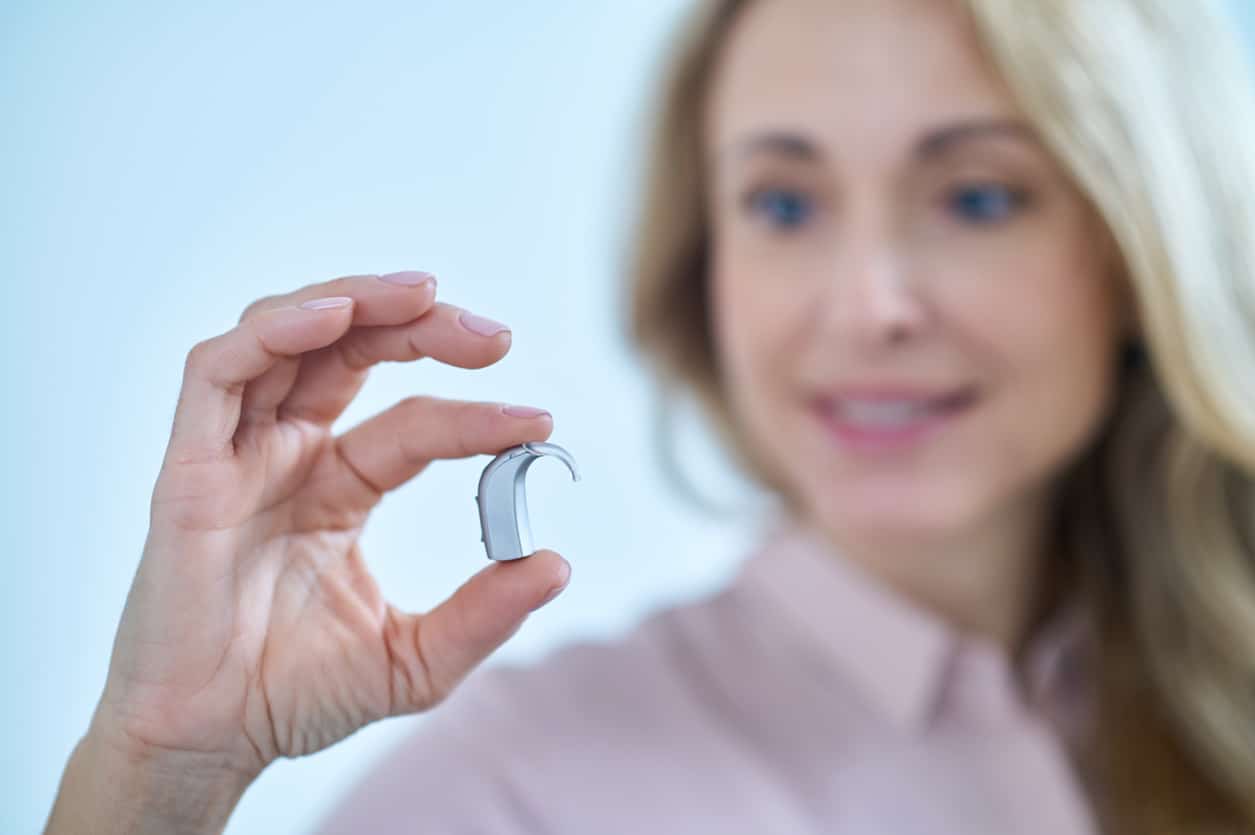Last week, we discussed why your hearing aids might wear out and require an upgrade. But we know that hearing aids are a significant investment, and you want to extend their life as much as possible, so we’ve compiled a few expert tips to help improve the lifespan of your hearing aids.

Clean Your Hearing Aids Every Day
Daily cleanings are essential for the hearing aids’ functionality and for extending their lifespan. A daily cleaning routine takes just five to ten minutes, and you can do it when you take your hearing aids out at night before going to bed.
For a quick daily cleaning, use a soft cloth to wipe down the surface of the hearing aid. This will remove dust, oils from the inside of your ear, moisture and dirt. Wipe off earwax as well, and in the event of stubborn earwax buildup, use a wax pick or loop to remove it. Earwax can clog your hearing aids and lead to malfunction, so stay on top of cleaning them off. Don’t use water or harsh cleaning chemicals to clean your hearing aids; they can cause damage.
Store Them Safely
When you take your hearing aids out for any reason, stash them somewhere safe. At a minimum, make sure you leave them in a place where you won’t lose them and they won’t get damaged by, for example, getting knocked over or stepped on. Keep them out of reach of children and pets, as well. But the best practice is to store them properly in their storage case and in a cool, dry location. Do not store them in a humid environment or near water.
Take Care of the Battery
If you have replaceable button batteries, open the door to the battery compartment and remove the batteries when you take your hearing aids out at night. Condensation from the air or from your sweat can accumulate in the compartment throughout the day, and a wet battery can corrode and ruin your hearing aid. Airing the compartment out at night reduces the risk of this happening.
In addition, store your batteries wisely to make sure they last as long as possible, as well. Store your batteries in a cool, dry place and use your oldest package of batteries first. Always wash your hands before replacing the battery to ensure no dirt or grime gets into the battery compartment.
Avoid Contact with Water
Never wear your hearing aids in the shower, while swimming or in any other environment where you might come in contact with water. Likewise, be mindful of rainy or humid weather and take steps to mitigate the chances of your hearing aids getting wet—carry an umbrella, for example, or wear a headband over your ears to shield them from water.
If your hearing aids do get wet, use a drying kit or put them in a dehumidifier right away. Make sure they have thoroughly dried off before reinserting them in your ears.
Get Them Cleaned and Checked Regularly
Give your hearing aid regular tune-ups with your audiologist to give them a deep clean and ensure everything is in good working order. Our team has the knowledge and specialized tools to clean the more delicate components of the hearing aid, as well as determine if any service is needed. Call Audiology Associates of Redding today to discuss the health of your hearing aids and make an appointment.